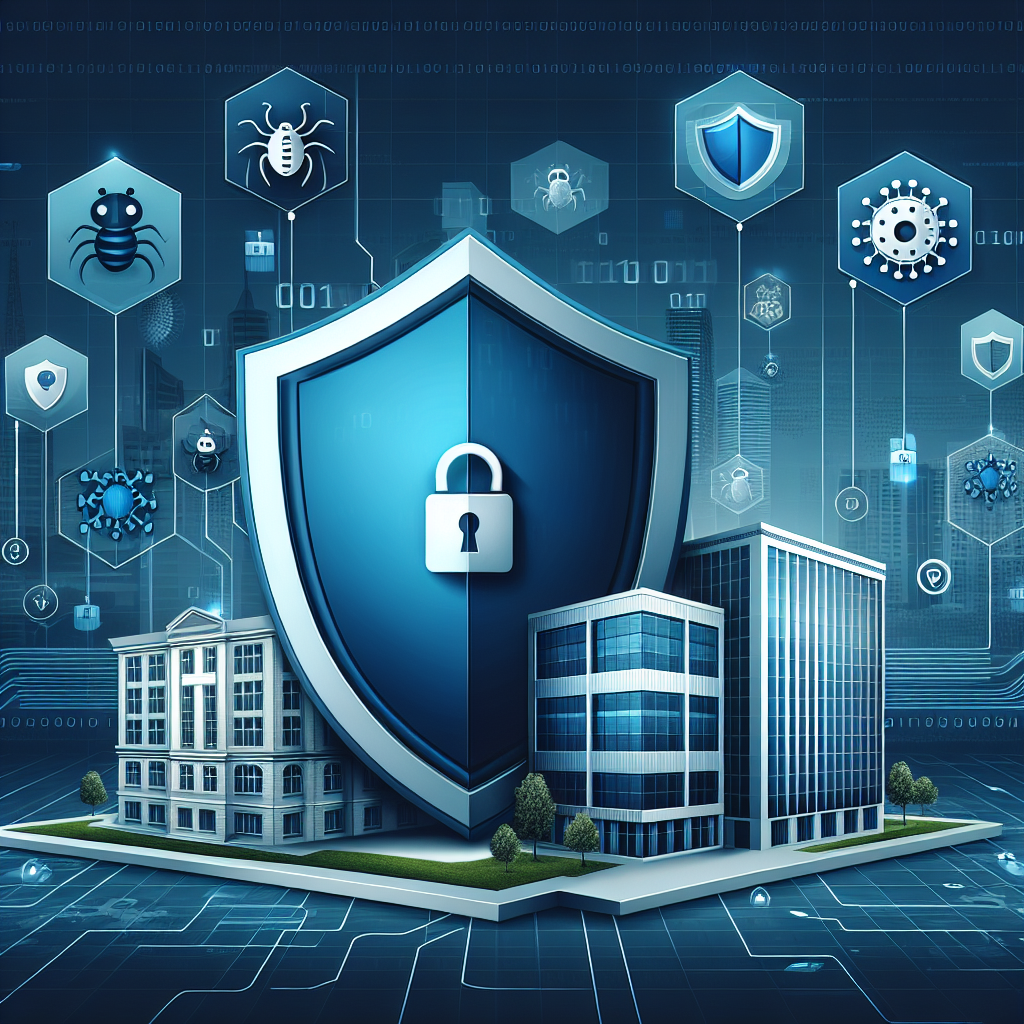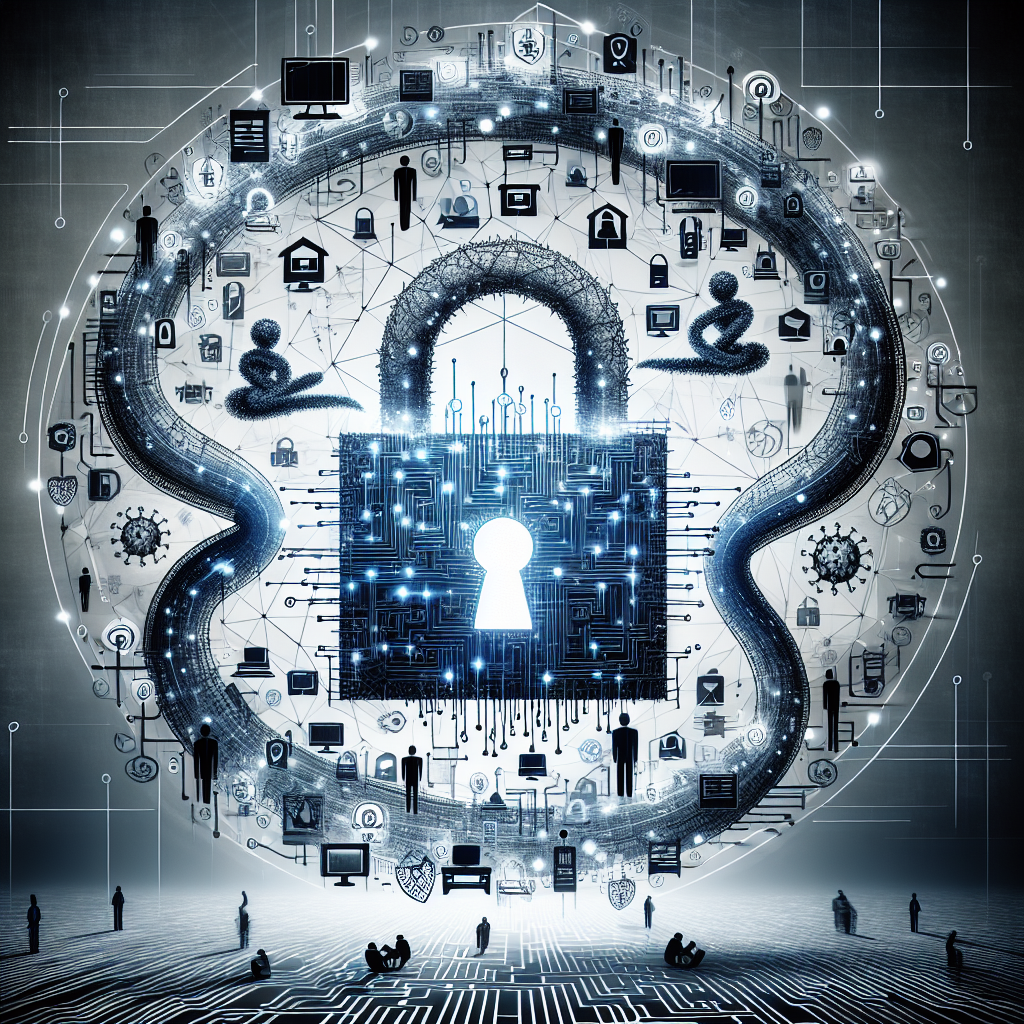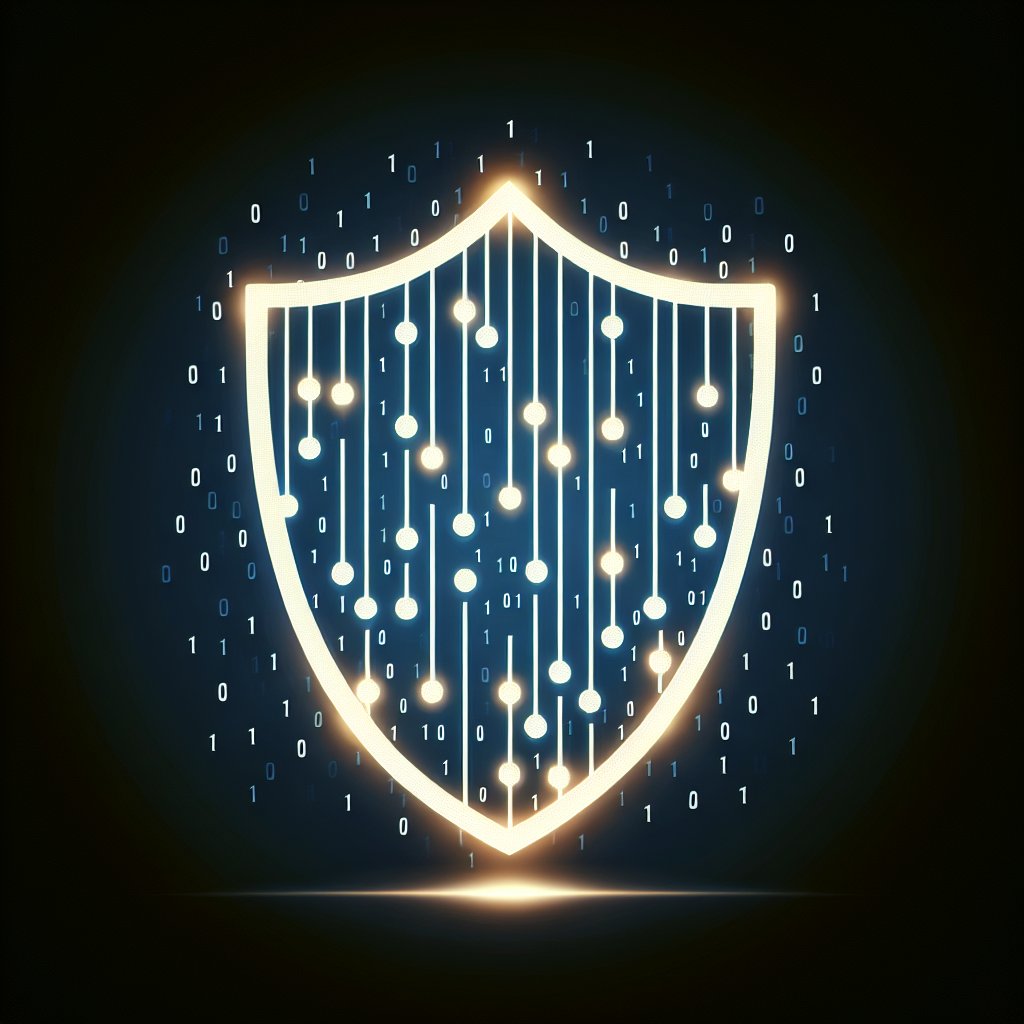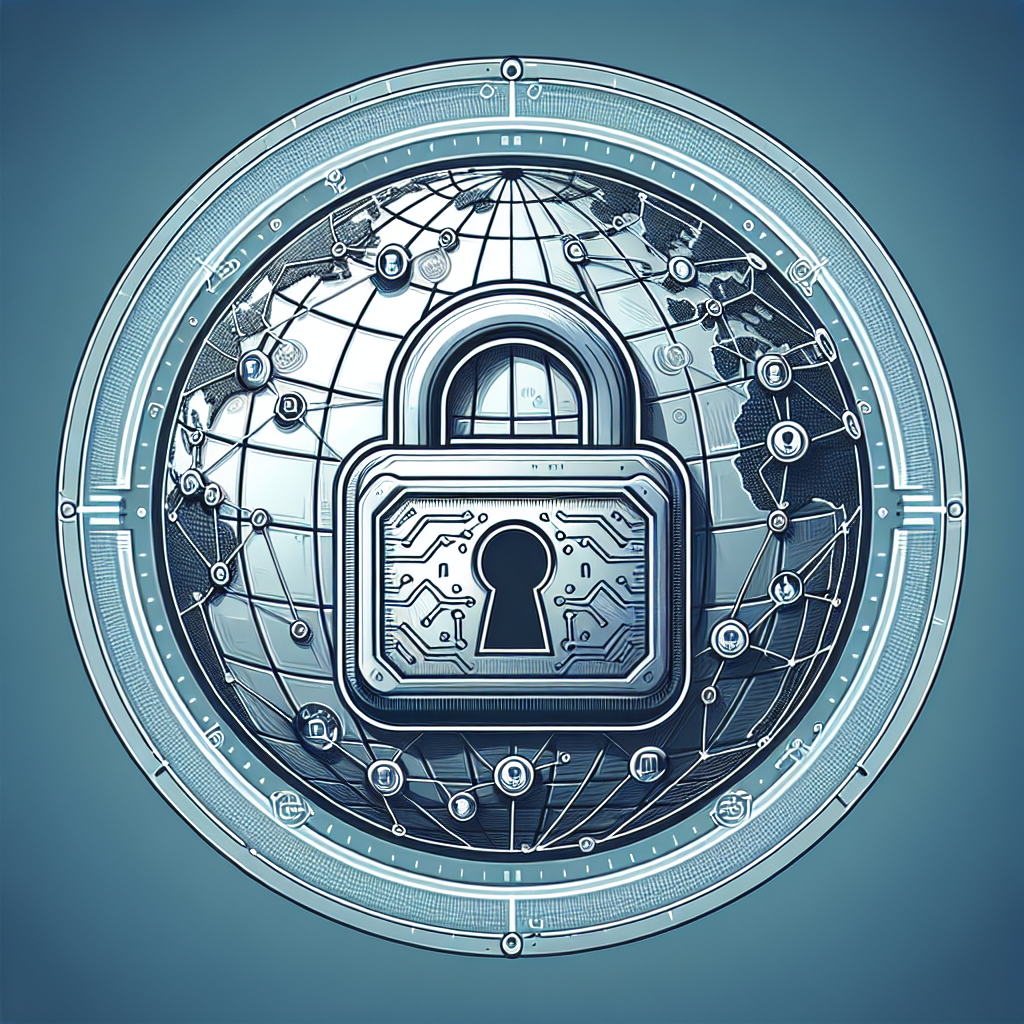Your cart is currently empty!
Tag: Cybersecurity
Cybersecurity 101: Essential Tips for Keeping Your Personal Information Safe Online
In today’s digital age, cybersecurity is more important than ever. With cyber attacks on the rise, it’s crucial to take steps to protect your personal information online. Here are some essential tips for keeping your personal information safe:1. Use strong, unique passwords: One of the easiest ways for hackers to access your personal information is through weak passwords. Make sure to use strong, unique passwords for each of your online accounts. Avoid using easily guessable information such as your birthday or pet’s name.
2. Enable two-factor authentication: Two-factor authentication adds an extra layer of security to your accounts by requiring a second form of verification, such as a code sent to your phone. This can help prevent unauthorized access to your accounts.
3. Be cautious of phishing scams: Phishing scams are a common tactic used by cybercriminals to trick individuals into revealing sensitive information. Be wary of emails or messages that ask for personal information or contain suspicious links. Always verify the sender’s identity before clicking on any links.
4. Keep your software up to date: Software updates often contain security patches that fix vulnerabilities that could be exploited by hackers. Make sure to regularly update your operating system, antivirus software, and other applications to stay protected.
5. Use a secure internet connection: When accessing sensitive information online, make sure to use a secure internet connection, such as a password-protected Wi-Fi network. Avoid using public Wi-Fi networks for tasks that involve sensitive information, as they can be easily intercepted by hackers.
6. Monitor your accounts regularly: Keep an eye on your bank accounts, credit card statements, and other online accounts for any suspicious activity. Report any unauthorized transactions or changes to your account immediately.
7. Secure your devices: Protect your devices with strong passwords or biometric authentication, such as fingerprint or facial recognition. Consider using encryption tools to secure your data in case your device is lost or stolen.
By following these essential tips, you can help protect your personal information online and reduce the risk of falling victim to cyber attacks. Stay vigilant and proactive in safeguarding your digital identity to ensure a safe and secure online experience.

The Top Cybersecurity Threats Facing Businesses Today
In today’s digital age, cybersecurity has become a critical concern for businesses of all sizes. With the rise of cyberattacks and data breaches, companies are facing an increasing number of threats that can compromise their sensitive information and damage their reputation. In this article, we will discuss the top cybersecurity threats facing businesses today and how they can protect themselves from these risks.1. Phishing attacks: Phishing attacks are one of the most common cybersecurity threats facing businesses today. In a phishing attack, hackers use fake emails, messages, or websites to trick employees into revealing sensitive information, such as login credentials or financial data. These attacks can result in data breaches, financial losses, and reputational damage for businesses. To protect against phishing attacks, companies should educate their employees about the signs of phishing emails and implement email filtering systems to detect and block suspicious messages.
2. Ransomware: Ransomware is a type of malware that encrypts a company’s data and demands a ransom in exchange for decrypting it. Ransomware attacks are becoming increasingly sophisticated, with hackers targeting businesses of all sizes. These attacks can disrupt business operations, cause financial losses, and damage a company’s reputation. To protect against ransomware, businesses should regularly back up their data, update their software and security systems, and train employees on how to recognize and respond to ransomware attacks.
3. Insider threats: Insider threats are cybersecurity risks that come from within a company, such as employees, contractors, or partners. These threats can include accidental data breaches, malicious insiders, or negligent employees who fail to follow security protocols. Insider threats can result in data leaks, financial losses, and reputational damage for businesses. To mitigate insider threats, companies should implement strict access controls, monitor employee activities, and provide cybersecurity training to all employees.
4. DDoS attacks: Distributed Denial of Service (DDoS) attacks are another major cybersecurity threat facing businesses today. In a DDoS attack, hackers flood a company’s website or network with traffic, causing it to become overwhelmed and unavailable to legitimate users. DDoS attacks can disrupt business operations, cause financial losses, and damage a company’s reputation. To defend against DDoS attacks, businesses should invest in DDoS protection services, monitor their network traffic for unusual patterns, and implement strong network security measures.
5. Supply chain attacks: Supply chain attacks are a growing cybersecurity threat for businesses that rely on third-party vendors, suppliers, or service providers. In a supply chain attack, hackers target a company’s supply chain partners to gain access to their systems and compromise the company’s data. These attacks can result in data breaches, financial losses, and reputational damage for businesses. To protect against supply chain attacks, companies should conduct regular security assessments of their vendors, implement strong contractual agreements, and monitor their supply chain partners for any signs of suspicious activity.
In conclusion, businesses today face a wide range of cybersecurity threats that can compromise their sensitive information and damage their reputation. By understanding these threats and implementing strong cybersecurity measures, companies can protect themselves from cyberattacks and safeguard their data from potential breaches. It is essential for businesses to stay vigilant and proactive in addressing cybersecurity risks to ensure the safety and security of their operations in an increasingly digital world.

How to Protect Your Business from Cyber Attacks: A Comprehensive Guide to Cybersecurity
In today’s digital age, businesses face an increasing threat of cyber attacks that can compromise sensitive information, disrupt operations, and damage their reputation. It is crucial for business owners to prioritize cybersecurity measures to protect their organizations from these threats. This comprehensive guide will outline key steps that businesses can take to safeguard their systems and data from cyber attacks.1. Conduct a Cybersecurity Assessment: The first step in protecting your business from cyber attacks is to assess your current cybersecurity posture. This includes identifying potential vulnerabilities in your systems, network, and processes. Conducting a thorough assessment will help you understand the specific risks facing your business and develop a targeted cybersecurity strategy.
2. Implement Strong Password Policies: Weak passwords are a common entry point for cyber attackers. Ensure that all employees use strong, unique passwords for their accounts and regularly update them. Consider implementing multi-factor authentication for an added layer of security.
3. Keep Software and Systems Updated: Cyber attackers often exploit known vulnerabilities in software and systems to gain unauthorized access. To mitigate this risk, regularly update all software, applications, and operating systems with the latest security patches and updates.
4. Educate Employees on Cybersecurity Best Practices: Human error is a significant factor in many cyber attacks. Provide comprehensive cybersecurity training to employees to raise awareness of common threats, such as phishing scams and social engineering attacks. Encourage employees to be vigilant and report any suspicious activity immediately.
5. Secure Your Network: Implement robust network security measures, such as firewalls, intrusion detection systems, and encryption, to protect your business’ data and communications. Restrict access to sensitive information on a need-to-know basis and regularly monitor network activity for any signs of unauthorized access.
6. Backup Your Data Regularly: In the event of a cyber attack or data breach, having regular backups of your business’ data is essential for recovery. Store backups securely offsite or in the cloud to prevent them from being compromised in the event of a cyber attack.
7. Develop an Incident Response Plan: Despite your best efforts, cyber attacks can still occur. Develop a comprehensive incident response plan that outlines the steps to take in the event of a security breach. Assign roles and responsibilities to key personnel, establish communication protocols, and test the plan regularly to ensure its effectiveness.
8. Partner with a Managed Security Services Provider: For businesses that lack the resources or expertise to manage cybersecurity internally, partnering with a managed security services provider can provide an added layer of protection. These professionals can help identify and mitigate security risks, monitor for threats, and respond to incidents in a timely manner.
By following these cybersecurity best practices, businesses can enhance their defenses against cyber attacks and safeguard their valuable data and assets. Investing in cybersecurity is not only necessary to protect your business but also to build trust with customers and partners. Stay proactive and stay safe in the digital landscape.

The Cost of Ignoring Cybersecurity: Why Every Individual and Business Needs to Take Action
In today’s digital age, cybersecurity has become more important than ever. With the increasing reliance on technology for both personal and business activities, the risk of falling victim to cyber attacks has also grown exponentially. Ignoring cybersecurity is no longer an option, as the consequences of a breach can be devastating for individuals and businesses alike.The cost of ignoring cybersecurity can be significant, both in terms of financial loss and reputational damage. For individuals, a breach can result in the theft of personal information such as credit card details, social security numbers, and other sensitive data. This can lead to identity theft, financial fraud, and other forms of cybercrime. The emotional toll of being a victim of cybercrime can also be significant, as individuals may feel violated and vulnerable.
For businesses, the cost of a cybersecurity breach can be even more severe. In addition to the financial losses resulting from theft of customer data or intellectual property, businesses may also face legal penalties and regulatory fines for failing to protect sensitive information. The reputational damage caused by a breach can also have long-lasting consequences, as customers may lose trust in the company and take their business elsewhere.
In light of these risks, it is crucial for both individuals and businesses to take action to protect themselves from cyber threats. This includes implementing strong password policies, regularly updating software and security patches, using encryption to protect sensitive data, and training employees on cybersecurity best practices. Investing in cybersecurity tools and services, such as firewalls, antivirus software, and intrusion detection systems, can also help to safeguard against potential threats.
Ultimately, the cost of ignoring cybersecurity far outweighs the investment required to protect against cyber threats. By taking proactive measures to secure their digital assets, individuals and businesses can minimize the risk of falling victim to cyber attacks and safeguard their financial and personal information. In today’s interconnected world, cybersecurity is no longer a luxury – it is a necessity.

Cybersecurity for Beginners: Tips for Internet Safety
In today’s digital age, cybersecurity is more important than ever. With the rise of cyber threats such as hacking, phishing, and malware, it’s crucial for internet users to take steps to protect themselves online. If you’re new to the world of cybersecurity and looking for tips on how to stay safe on the internet, you’ve come to the right place. Here are some beginner-friendly tips for internet safety:1. Use strong and unique passwords: One of the simplest yet most effective ways to protect yourself online is by using strong, unique passwords for all your online accounts. Avoid using easily guessable passwords such as “123456” or “password.” Instead, opt for long, complex passwords that include a mix of letters, numbers, and special characters.
2. Enable two-factor authentication: Two-factor authentication adds an extra layer of security to your online accounts by requiring you to provide a second form of verification, such as a code sent to your phone, in addition to your password. Enable two-factor authentication whenever possible to protect your accounts from unauthorized access.
3. Keep your software up to date: Software updates often include security patches that fix vulnerabilities that cybercriminals could exploit. Make sure to regularly update your operating system, web browser, and other software on your devices to stay protected against the latest threats.
4. Be cautious of phishing emails and messages: Phishing is a common tactic used by cybercriminals to trick users into revealing sensitive information such as passwords or credit card details. Be wary of unsolicited emails or messages that ask for personal information or contain suspicious links. Always verify the sender’s identity before clicking on any links or providing any information.
5. Use a reputable antivirus program: Antivirus software can help protect your devices from malware, ransomware, and other cyber threats. Invest in a reputable antivirus program and regularly scan your devices for any malicious software.
6. Secure your home network: Secure your home Wi-Fi network by setting a strong password, enabling encryption, and disabling remote access. This will help prevent unauthorized users from accessing your network and potentially compromising your devices.
7. Be mindful of what you share online: Be cautious about the information you share online, including on social media platforms. Avoid posting sensitive personal information such as your address, phone number, or financial details, as this information could be used by cybercriminals to target you.
By following these beginner-friendly tips for internet safety, you can protect yourself from cyber threats and enjoy a safer online experience. Remember that cybersecurity is a continuous process, so stay vigilant and regularly update your security measures to stay one step ahead of cybercriminals. Stay safe online!

Cybersecurity: The Key to a Secure Digital Future
In today’s digital age, cybersecurity has become more important than ever before. With the rise of cyber threats and attacks, protecting our digital assets and information has become a top priority for individuals, businesses, and governments alike. Cybersecurity is the key to a secure digital future, as it helps to safeguard our data, privacy, and online activities from potential threats.One of the biggest challenges in the digital world is the constant risk of cyber attacks. Hackers and cyber criminals are always looking for ways to exploit vulnerabilities in our systems and networks in order to steal valuable information or disrupt our operations. From phishing scams and ransomware attacks to data breaches and malware infections, the threats are varied and ever-evolving.
By implementing strong cybersecurity measures, we can protect ourselves against these threats and minimize the risk of falling victim to a cyber attack. This includes using secure passwords, keeping software and systems up to date, using encryption to protect data, and being vigilant about suspicious emails or websites. It also involves implementing firewalls, antivirus software, and other security tools to detect and prevent potential threats.
In addition to protecting our personal information and assets, cybersecurity is also essential for safeguarding critical infrastructure, national security, and the economy. As technology continues to advance and more aspects of our lives become connected to the internet, the potential impact of a cyber attack increases exponentially. From power grids and transportation systems to financial institutions and healthcare facilities, the consequences of a successful cyber attack can be devastating.
As such, governments and organizations around the world are investing heavily in cybersecurity measures to protect their digital assets and ensure the safety and security of their citizens. This includes collaboration with other countries and international organizations to share information and best practices, as well as developing new technologies and strategies to stay ahead of cyber threats.
Ultimately, cybersecurity is the key to a secure digital future. By taking proactive steps to protect ourselves and our digital assets, we can reduce the risk of falling victim to cyber attacks and ensure that our online activities are safe and secure. By staying informed about the latest threats and best practices, we can help to create a more secure digital environment for all.

The Growing Importance of Data Privacy in Cybersecurity
In today’s digital age, the importance of data privacy in cybersecurity has become more crucial than ever before. With the increasing amount of personal information being stored online, the risks of cyber attacks and data breaches have also risen significantly. As a result, businesses and individuals alike are starting to prioritize data privacy as a fundamental aspect of their cybersecurity strategies.Data privacy refers to the protection of personal information and sensitive data from unauthorized access, use, or disclosure. This includes everything from credit card details and social security numbers to email addresses and browsing history. With the rise of cybercrime and the prevalence of data breaches, it has become imperative for organizations to take proactive measures to safeguard their data and protect the privacy of their users.
One of the main reasons why data privacy has become so important in cybersecurity is the sheer volume of data being generated and collected on a daily basis. With the proliferation of smartphones, social media platforms, and Internet-connected devices, individuals are constantly sharing their personal information online. This data is often stored by companies and organizations, making it a prime target for cybercriminals looking to steal sensitive information for malicious purposes.
Furthermore, the implementation of data privacy regulations such as the General Data Protection Regulation (GDPR) and the California Consumer Privacy Act (CCPA) has also made data privacy a top priority for businesses. These regulations require organizations to implement strict data protection measures, obtain user consent before collecting personal information, and notify users in the event of a data breach. Failure to comply with these regulations can result in hefty fines and damage to a company’s reputation.
In addition to regulatory requirements, maintaining strong data privacy practices can also help businesses build trust with their customers. By demonstrating a commitment to protecting user data and respecting their privacy rights, organizations can enhance their credibility and reputation in the eyes of consumers. This can lead to increased customer loyalty, improved brand perception, and ultimately, a competitive advantage in the marketplace.
To enhance data privacy in cybersecurity, organizations can implement a range of best practices, such as encrypting sensitive data, regularly updating security protocols, and conducting thorough risk assessments. They can also invest in cybersecurity tools and technologies that can help detect and prevent data breaches, such as intrusion detection systems and data loss prevention software.
Ultimately, the growing importance of data privacy in cybersecurity underscores the need for organizations to prioritize the protection of personal information and sensitive data. By implementing robust data privacy measures, businesses can mitigate the risks of cyber attacks, comply with regulatory requirements, and build trust with their customers. In today’s interconnected world, data privacy is no longer just a nice-to-have – it’s a necessity for ensuring the security and integrity of digital information.

Common Myths and Misconceptions About Cybersecurity
Cybersecurity is a critical issue in today’s digital age, with the increasing number of cyber threats and attacks targeting individuals, businesses, and organizations. However, despite the growing awareness of the importance of cybersecurity, there are still many myths and misconceptions surrounding this topic. In this article, we will debunk some of the most common myths and misconceptions about cybersecurity.Myth #1: Small businesses are not targeted by cybercriminals
One of the most common myths about cybersecurity is that only large corporations are targeted by cybercriminals. In reality, small businesses are just as vulnerable to cyber attacks, if not more so, as they often lack the resources and expertise to implement robust cybersecurity measures. Cybercriminals target small businesses because they are seen as easy targets with valuable data that can be exploited for financial gain. It is important for small businesses to invest in cybersecurity solutions to protect their sensitive information and prevent cyber attacks.
Myth #2: Antivirus software is enough to protect against cyber threats
While antivirus software is an essential tool in protecting against malware and other cyber threats, it is not enough on its own to ensure comprehensive cybersecurity. Cybercriminals are constantly evolving their tactics and techniques, making it essential for organizations to implement a multi-layered approach to cybersecurity. This includes firewalls, intrusion detection systems, data encryption, and employee training on cybersecurity best practices. Additionally, regular software updates and patches are crucial in addressing vulnerabilities that cybercriminals can exploit.
Myth #3: Cybersecurity is the IT department’s responsibility
Another common misconception is that cybersecurity is solely the responsibility of the IT department. While IT professionals play a crucial role in implementing and managing cybersecurity measures, cybersecurity is a collective responsibility that involves everyone in the organization. Employees are often the weakest link in cybersecurity, as they can inadvertently click on malicious links or fall victim to phishing scams. It is important for organizations to provide cybersecurity training to all employees and create a culture of cybersecurity awareness and vigilance.
Myth #4: Cyber attacks only happen to those who are not careful online
It is a common belief that only individuals who are careless or irresponsible online fall victim to cyber attacks. While practicing good online hygiene, such as using strong passwords and avoiding suspicious links, can help reduce the risk of falling victim to cyber attacks, no one is immune to cyber threats. Cybercriminals are becoming increasingly sophisticated in their tactics, making it essential for individuals to stay informed about the latest cybersecurity threats and take proactive measures to protect their personal information online.
In conclusion, cybersecurity is a complex and ever-evolving field that requires a proactive and multi-layered approach to effectively protect against cyber threats. By debunking common myths and misconceptions about cybersecurity, individuals and organizations can better understand the importance of implementing robust cybersecurity measures and staying vigilant against cyber attacks. Remember, cybersecurity is everyone’s responsibility.

The Importance of Cybersecurity in Today’s Digital Age
In today’s digital age, cybersecurity has become more important than ever. With the rise of technology and the internet, our personal and sensitive information is constantly at risk of being compromised by cybercriminals. From financial data to personal emails, our digital footprint is vast and vulnerable to attacks.Cybersecurity refers to the practice of protecting digital systems, networks, and data from cyber threats. These threats can come in various forms, such as malware, phishing attacks, ransomware, and hacking. Without proper cybersecurity measures in place, individuals and organizations are at risk of having their information stolen, tampered with, or even deleted.
One of the main reasons why cybersecurity is so important in today’s digital age is the sheer amount of data that is being generated and stored online. From social media profiles to online shopping accounts, we are constantly sharing personal information that can be exploited by cybercriminals. Without proper protection, this data can be easily accessed and used for malicious purposes.
Furthermore, the rise of remote work and digital communication has made cybersecurity even more crucial. With more people working from home and using online platforms to communicate, the risk of cyber attacks has increased significantly. Companies must ensure that their employees are trained in cybersecurity best practices and that their systems are secure to protect sensitive company information.
In addition, cybersecurity is essential for safeguarding critical infrastructure, such as power grids, transportation systems, and healthcare facilities. A cyber attack on these systems could have devastating consequences, affecting not only individuals but entire communities.
Overall, the importance of cybersecurity in today’s digital age cannot be overstated. It is essential for protecting our personal information, securing our digital systems, and safeguarding critical infrastructure. By investing in cybersecurity measures and staying informed about the latest threats, we can help ensure a safer and more secure digital world for all.

The Role of Technical Support in Cybersecurity Defense
In today’s digital age, cybersecurity has become a top priority for businesses and individuals alike. With the increasing number of cyber threats and attacks, it is crucial to have a strong defense in place to protect sensitive information and data. One key component of a robust cybersecurity defense is technical support.Technical support plays a vital role in cybersecurity defense by providing assistance and expertise in implementing, managing, and troubleshooting security measures. Whether it’s setting up firewalls, installing antivirus software, or responding to a security incident, technical support teams are essential in safeguarding digital assets and preventing cyber attacks.
One of the main functions of technical support in cybersecurity defense is to ensure that security systems and protocols are properly configured and up to date. This includes monitoring network traffic, identifying vulnerabilities, and implementing patches and updates to prevent potential security breaches. Technical support teams also play a crucial role in educating employees and users about best practices for cybersecurity, such as creating strong passwords, avoiding phishing scams, and practicing safe browsing habits.
In the event of a cyber attack or security incident, technical support teams are responsible for responding quickly and effectively to mitigate the damage and restore systems to normal operation. This may involve isolating infected systems, conducting forensic analysis to identify the source of the breach, and implementing remediation strategies to prevent future attacks.
Furthermore, technical support teams are also instrumental in conducting regular security audits and assessments to identify weaknesses and gaps in the organization’s cybersecurity defenses. By proactively identifying and addressing vulnerabilities, technical support helps to strengthen the overall security posture and reduce the risk of cyber attacks.
In conclusion, technical support plays a critical role in cybersecurity defense by providing expertise, guidance, and assistance in implementing and maintaining security measures. By working closely with IT and security teams, technical support helps to ensure that organizations are well-equipped to defend against cyber threats and protect sensitive information from malicious actors. As cyber attacks continue to evolve and become more sophisticated, the role of technical support in cybersecurity defense will only become more important in safeguarding digital assets and maintaining the integrity of systems and data.
